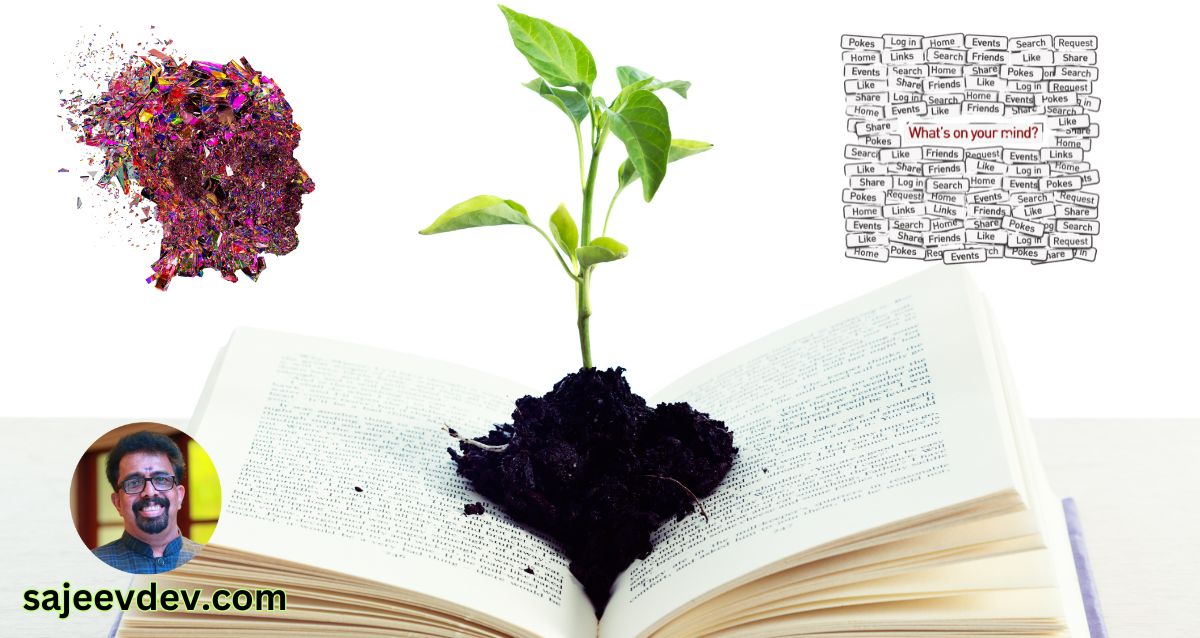The Mind as a Garden
In the realm of personal development, the mind can be likened to a garden, flourishing with the potential to grow vibrant flowers or withering under weeds. This metaphor not only illustrates the importance of our thoughts and focus but also emphasizes the need for intentional cultivation of our mental landscape. Just as a gardener must tend to plants, removing weeds and ensuring they receive adequate sunlight and nourishment, individuals must actively nurture their mental well-being and foster a positive mindset.
The initial steps in this process begin with understanding that our thoughts significantly influence our overall outlook on life. Just as seeds planted in fertile soil can blossom into beautiful flowers, positive thoughts can lead to enhanced emotional resilience and empowerment. Conversely, if the mind is left untended, negative thoughts can take root, leading to a landscape overtaken by self-doubt and fear. Thus, the act of cultivating positivity becomes essential for personal growth and fulfillment.
Furthermore, this gardening metaphor highlights the importance of mindfulness in our daily lives. Just as a gardener would pay attention to the changing seasons and adapt their care accordingly, individuals should be aware of their mental states and the various influences that affect their thoughts. This proactive approach fosters an environment where positivity can thrive, allowing one to take charge of their mental journey. By recognizing the parallels between gardening and mental cultivation, we understand that empowering ourselves begins with a commitment to nurturing our thoughts, encouraging growth, and creating a flourishing mental garden.
Understanding the Seeds: Thoughts and Emotions
Our mind serves as a fertile ground where thoughts and emotions can flourish, similar to seeds sown in a garden. These seeds play an essential role in shaping our mindset, ultimately influencing our perceptions and actions. The types of seeds we choose to cultivate significantly determine the quality of our mental landscape, with positive thoughts acting as vibrant flowers, while negative thoughts often resemble weeds that can overrun our garden.
Positive thoughts foster an environment of growth and empowerment. They act as nourishing elements, enabling us to overcome challenges and build resilience. For instance, affirmative affirmations and constructive reflections create a supportive inner dialogue, reinforcing our goals and aspirations. In contrast, negative thoughts tend to suffocate our mental growth, leading to feelings of inadequacy and self-doubt. These destructive seeds, if left unchecked, can take root and proliferate, overshadowing the positive growth we are trying to nurture.
Moreover, our emotions also play a critical role in this process. Emotions can be perceived as the weather conditions affecting our mental garden; sunny days can boost our spirits, while storms or overcast skies can cloud our judgment and thought processes. By being mindful of our emotional responses, we can cultivate a more balanced and flourishing mindset. It is essential to recognize the interplay between thoughts and emotions, as both can influence each other in a cyclical manner, creating a profound impact on our overall well-being.
Thus, the cultivation of our mental garden hinges on the seeds we plant—thoughts and emotions. By consciously choosing constructive and positive seeds, we can create a resilient and empowering mindset that bears fruits of positivity and fulfillment in our lives.
Weed Out Negativity: The Importance of Mindfulness
Just as a gardener meticulously removes weeds to ensure the healthy growth of plants, individuals must cultivate their minds by eliminating negative thoughts and beliefs that obstruct personal development. This process, known as mindfulness, involves being present and fully engaged in the moment. Through mindfulness practices, one can identify these unwanted thoughts and effectively “weed” them out of their mental garden.
One of the most effective techniques for fostering mindfulness is meditation. Engaging in meditation allows an individual to create a mental space where thoughts can be observed without judgment. This practice encourages self-awareness, helping one recognize negative thought patterns that may have taken root over time. By acknowledging these thoughts, individuals can begin the important work of transforming them into positive affirmations, enabling personal growth and emotional resilience.
Another valuable technique is conscious breathing, which serves to anchor practitioners in the present moment. By focusing on the rhythm of one’s breath, negative thoughts can be set aside, creating a mental clarity that is essential for identifying and replacing them. This practice not only enhances mindfulness but also reduces stress, further fostering a positive mental environment conducive to growth.
Integrating mindfulness into daily life can significantly impact overall well-being. Regularly engaging in these practices can lead to a deeper understanding of one’s thoughts and emotions, ultimately promoting a mindset characterized by positivity and empowerment. As individuals cultivate their inner landscape, they nurture not only themselves but also their relationships with others and their surroundings.
In conclusion, prioritizing mindfulness allows individuals to effectively eliminate negativity from their minds, facilitating personal growth and fostering a more empowering and positive outlook on life.
Watering Your Garden: Daily Habits for a Healthy Mindset
Nourishing the mind is akin to tending to a garden, where daily habits play a critical role in fostering a thriving environment for personal growth. Implementing consistent practices can significantly enhance mental well-being and promote a positive outlook on life. A primary strategy is journaling, which provides an avenue for self-expression and exploration of thoughts. Writing daily not only clarifies feelings but also helps track progress over time, allowing for reflective growth and greater self-awareness.
Another powerful tool for cultivating a healthy mindset is the practice of positive affirmations. These are simple, positive statements that can reframe negative thoughts and reinforce self-belief. By repeating affirmations daily, individuals can reshape their internal dialogue, fostering empowerment and resilience. This habit encourages the mind to focus on strengths rather than weaknesses, empowering one to tackle challenges with confidence.
Self-reflection is equally重要 as it encourages individuals to pause and assess their thoughts, actions, and emotions. Allocating a few moments each day for reflection can lead to valuable insights and growth. It is often beneficial to ask oneself critical questions regarding personal goals, values, and relationships. Such practices promote mindfulness, which in turn cultivates a peaceful and constructive mindset.
Alongside these practices, establishing a routine can contribute to mental stability. Creating a structured environment where one engages in daily activities that promote joy and fulfillment—such as physical exercise, meditation, or reading—can enhance mental resilience. Each of these strategies can collectively water the garden of the mind, supporting overall well-being and encouraging continual growth.
Planting Seeds of Positivity: Affirmations and Gratitude
In the journey towards cultivating a mindset rich in positivity and empowerment, the practice of affirmations and gratitude plays a pivotal role. Affirmations are succinct, positive statements that serve to challenge and counter negative thoughts. By continuously repeating these phrases, individuals can effectively rewire their brains, fostering a more positive self-image. Examples of powerful affirmations include “I am capable of achieving my goals,” “I choose to focus on the good in every situation,” and “I am worthy of love and support.” These simple yet profound declarations can be integrated into daily routines to build a more robust mental framework characterized by optimism.
In tandem with affirmations, cultivating a gratitude practice enhances one’s ability to maintain a positive outlook. Engaging in gratitude involves reflecting on and acknowledging the good things in one’s life, whether they are significant achievements or simple joys. A sustainable framework for gratitude can be established by setting aside dedicated time each day to reflect on three things for which one is thankful. This exercise not only shifts focus from what is lacking to what is abundant, but also strengthens emotional resilience. Keeping a gratitude journal can further amplify this practice; by documenting feelings of appreciation, individuals are better equipped to recognize recurring themes and sources of joy.
Both affirmations and gratitude are essential in planting seeds of positivity within the mind. They encourage an environment where negative thoughts are overshadowed by uplifting beliefs and appreciation for life’s offerings. By implementing these tools consistently, individuals can create a flourishing mental garden that yields empowerment and resilience, transforming challenges into opportunities for growth. Ultimately, the interplay of affirmations and gratitude nurtures a holistic mindset, allowing positivity to take root deep within one’s consciousness.
The Role of Environment: Surrounding Yourself with Support
The environment in which one operates plays a significant role in shaping mental well-being and fostering a productive mindset. Surrounding oneself with supportive individuals is essential in cultivating a positive mental landscape. Relationships have a direct impact on mood and motivation; hence it is crucial to engage with those who provide encouragement and positivity. These supportive connections can act as a buffer against stress and negativity, enabling individuals to thrive emotionally and mentally.
In addition to interpersonal relationships, the integration of inspirational content within one’s environment is equally vital. This can take various forms, such as books, podcasts, art, or music that uplift the spirit and inspire personal growth. Such content serves to reinforce positive thoughts and provides a continual source of motivation, helping to nurture one’s mental garden. The act of consuming positive and empowering media contributes to a more resilient mindset, thereby enhancing overall well-being.
Creating an uplifting environment involves being intentional about the spaces you occupy. Begin by evaluating your current surroundings—consider decluttering both your physical and digital spaces to remove negativity and distractions. This process allows for the reinforcement of positivity, making room for inspirational elements. Integrating visuals, such as motivational quotes or imagery that resonates with your aspirations, can influence your mindset and keep you focused on your personal growth journey.
Furthermore, engaging in activities that promote connection and wellness, such as joining supportive communities or practicing mindfulness, can greatly enhance one’s environment. By surrounding yourself with positivity, you essentially create a fertile ground for your mind to flourish. The interaction of supportive individuals and inspirational content is foundational, allowing you to cultivate resilience and empowering thoughts that ultimately foster your overall mental garden.
Watch Your Garden Grow: Celebrating Small Wins
In the journey of personal growth, it is essential to recognize and celebrate the small wins that arise along the way. Each small achievement, no matter how insignificant it may seem, contributes to a larger narrative of progress. These milestones act as stepping stones, boosting our confidence and motivating us to continue pursuing our goals. Acknowledging these successes fosters a sense of accomplishment, reinforcing the idea that every effort, no matter its scale, is valuable.
The act of celebrating small wins is not merely an exercise in positivity; it is a vital component of cultivating a resilient mindset. When we take the time to appreciate what we have accomplished, even if it is taking the first steps towards a larger objective, we create an environment where motivation can thrive. This acknowledgment allows our minds to focus on the positive aspects of our journey rather than the setbacks, promoting a healthier outlook towards challenges.
Moreover, recognizing these minor victories can counter feelings of discouragement that often accompany the pursuit of significant goals. By highlighting our progress, we can nurture a growth-oriented perspective, allowing us to view obstacles as opportunities to learn and develop. This reframing of our experiences enables the cultivation of a mindset that is not only resilient but also adaptable.
Incorporating practices such as journaling or sharing achievements with friends and family can enhance our ability to recognize these small wins. Setting aside time to reflect on daily accomplishments fosters gratitude and reinforces our commitment to personal growth. Thus, by celebrating small victories, we enrich the process of self-discovery, propelling us toward greater ambitions with renewed enthusiasm.
Overcoming Droughts: Dealing with Setbacks
In the journey towards developing a positive mindset, encountering setbacks is a common experience, akin to facing a drought in a garden. These challenges can lead to feelings of frustration or discouragement, but it is essential to view them as opportunities for growth and learning. Adopting a resilient attitude allows individuals to transform failures into valuable lessons that can mold their character and enhance their mental fortitude.
One effective strategy for dealing with setbacks is reframing. This involves shifting one’s perspective on a negative experience, recognizing that failures are not definitive endpoints but rather stepping stones on the path to success. By viewing setbacks as integral components of personal development, individuals can cultivate a sense of empowerment, which plays a vital role in maintaining a positive mindset. For instance, if a project fails to meet expectations, instead of succumbing to disappointment, one might analyze what went wrong, extract insights, and apply those lessons to future endeavors.
Moreover, the practice of self-compassion is critical during times of difficulty. It is important to remember that everyone encounters obstacles; experiencing setbacks does not diminish one’s worth or capabilities. By treating oneself with kindness, individuals can foster emotional resilience, which helps to mitigate the negative impact of such challenges. This might involve engaging in positive self-talk or acknowledging feelings of frustration without judgment. Instead of berating oneself for perceived failures, recognizing that it is part of the learning trajectory encourages growth and reinforces a constructive mindset.
In summary, embracing setbacks as opportunities for learning and practicing self-compassion are pivotal in overcoming obstacles in cultivating a positive mindset. By implementing these strategies, individuals can bolster their resilience and continue their journey towards personal empowerment.
A Lifelong Journey of Cultivation
In the quest for a positive and empowered mindset, it is essential to recognize that cultivating the mind is not a task that can be completed overnight. Instead, it is an ongoing journey, akin to the continual maintenance and care required in a thriving garden. Just as flowers and plants require time, attention, and nurturing to flourish, so too do our mental faculties demand consistent effort and patience.
The process of cultivating a healthy mindset involves a series of deliberate actions that foster growth and resilience. Engaging in practices such as mindfulness, gratitude, and positive affirmations can significantly contribute to the development of a more constructive mental landscape. Small, incremental steps can lead to substantial transformations over time. Each moment dedicated to nurturing thoughts, emotions, and aspirations builds towards a more robust and flourishing mindset.
Patience is a vital component in this process. Much like waiting for seeds to sprout and mature, those who are cultivating their minds should give themselves permission to grow at their own pace. It is important to understand that setbacks may occur along the way, yet these challenges are often opportunities for learning and refinement. By maintaining a commitment to self-improvement and remaining open to new experiences, individuals can find joy in their journey of mental cultivation.
In conclusion, the path towards nurturing a positive and empowered mindset is indeed a lifelong journey. As we tend to our mental garden, we must not forget that every effort counts, no matter how small. The act of cultivating our minds can lead to profound changes, creating a rich tapestry of positivity that enhances not only our own lives but also the lives of those around us. Embrace this journey and cultivate your garden wisely, for the fruits of your labor will be well worth the wait.



